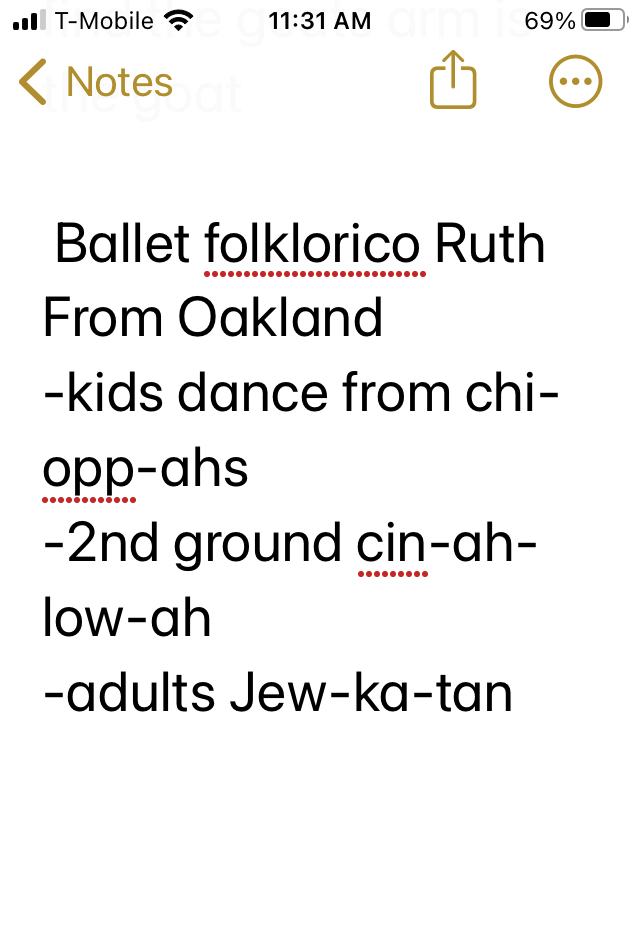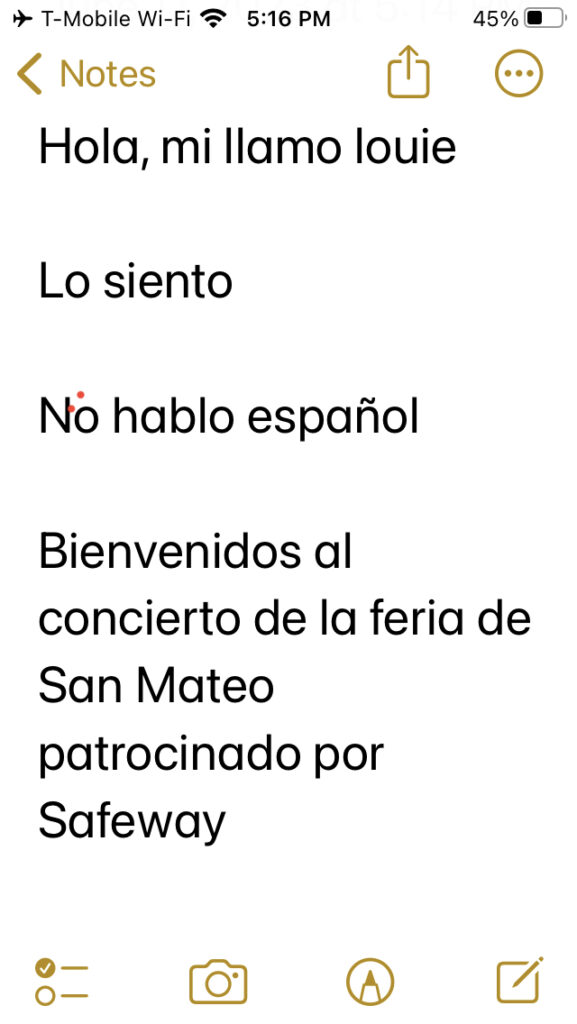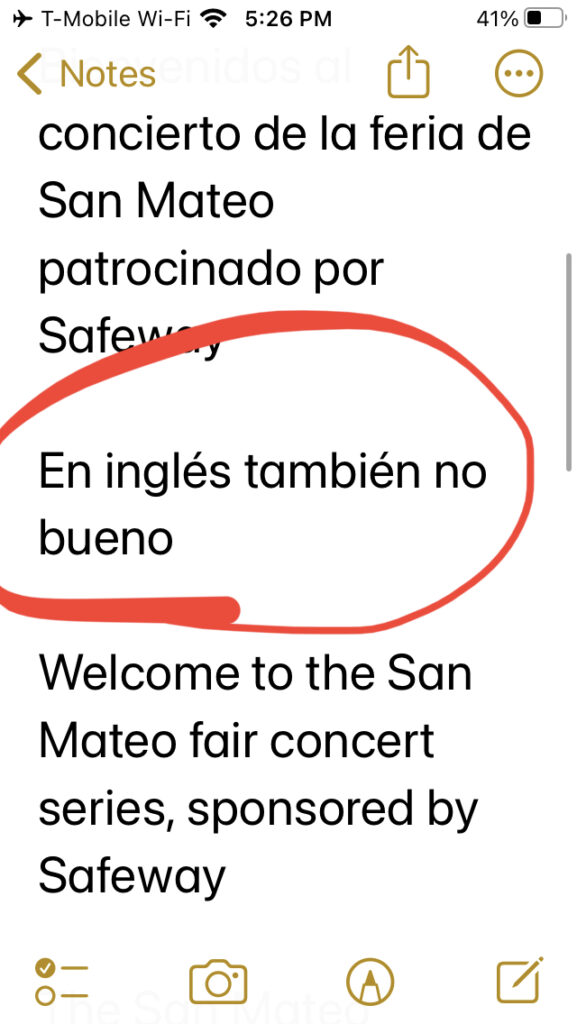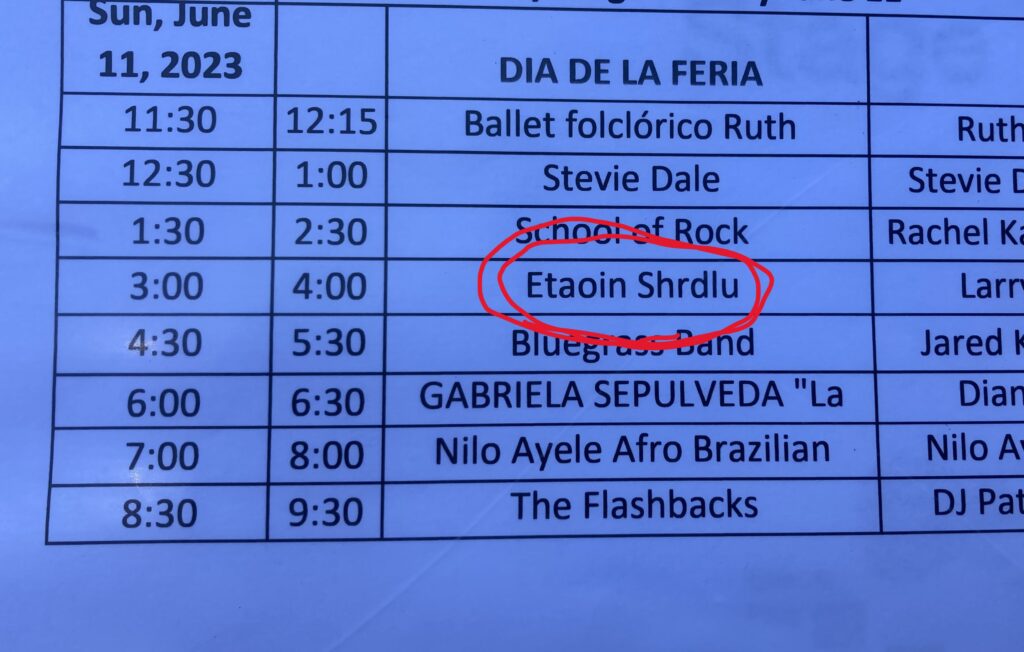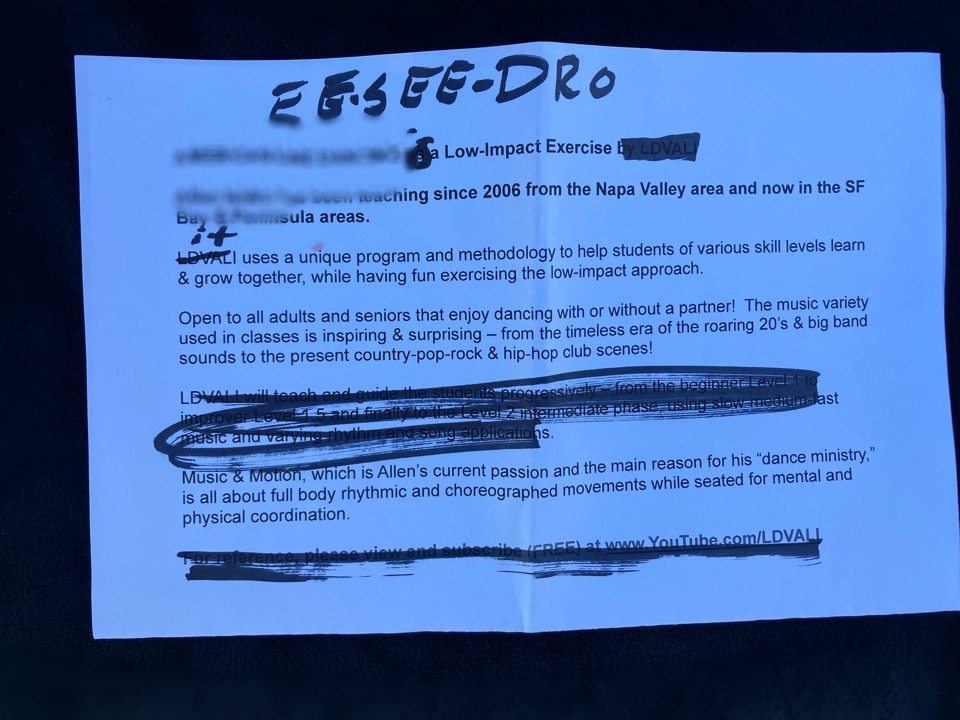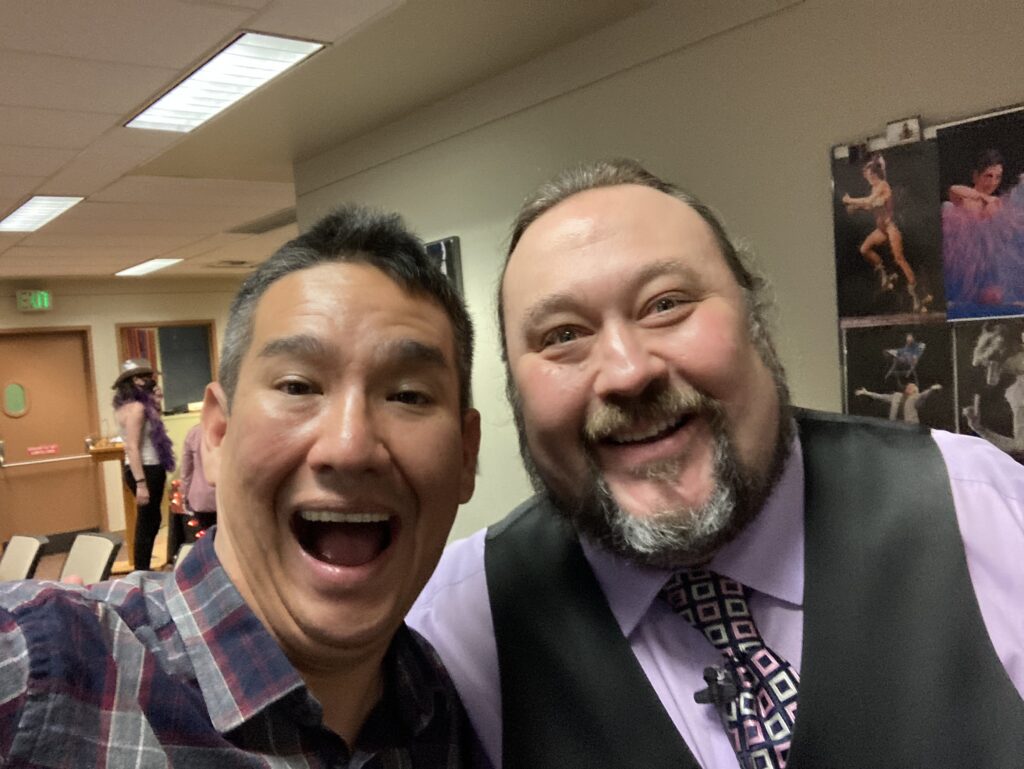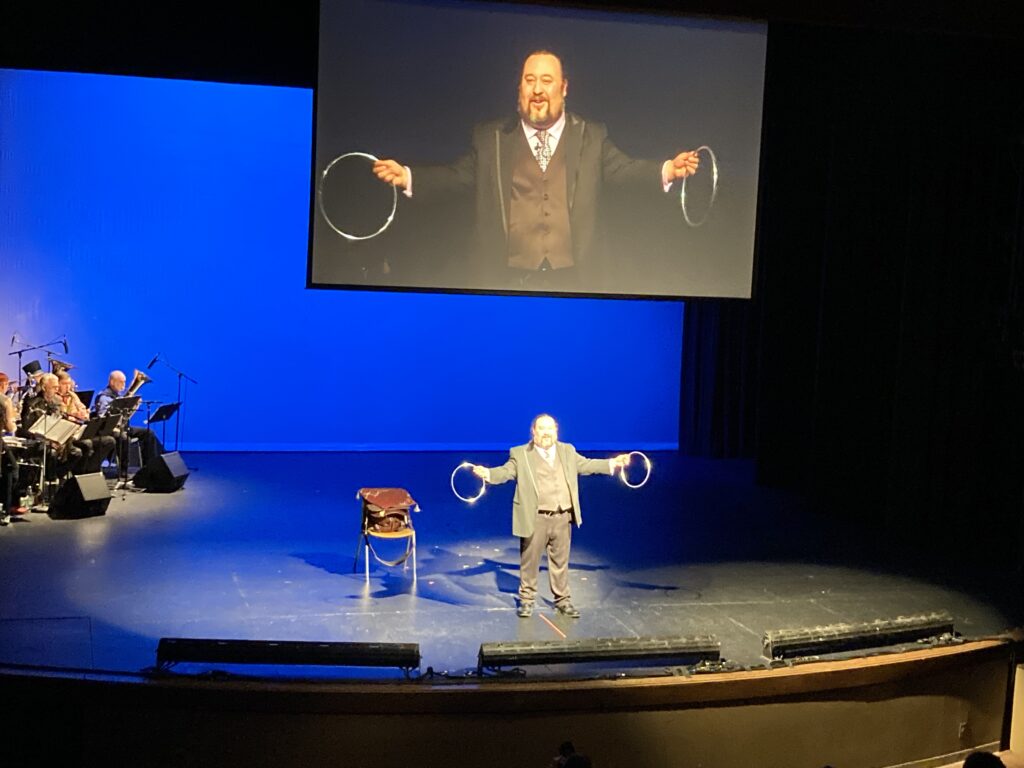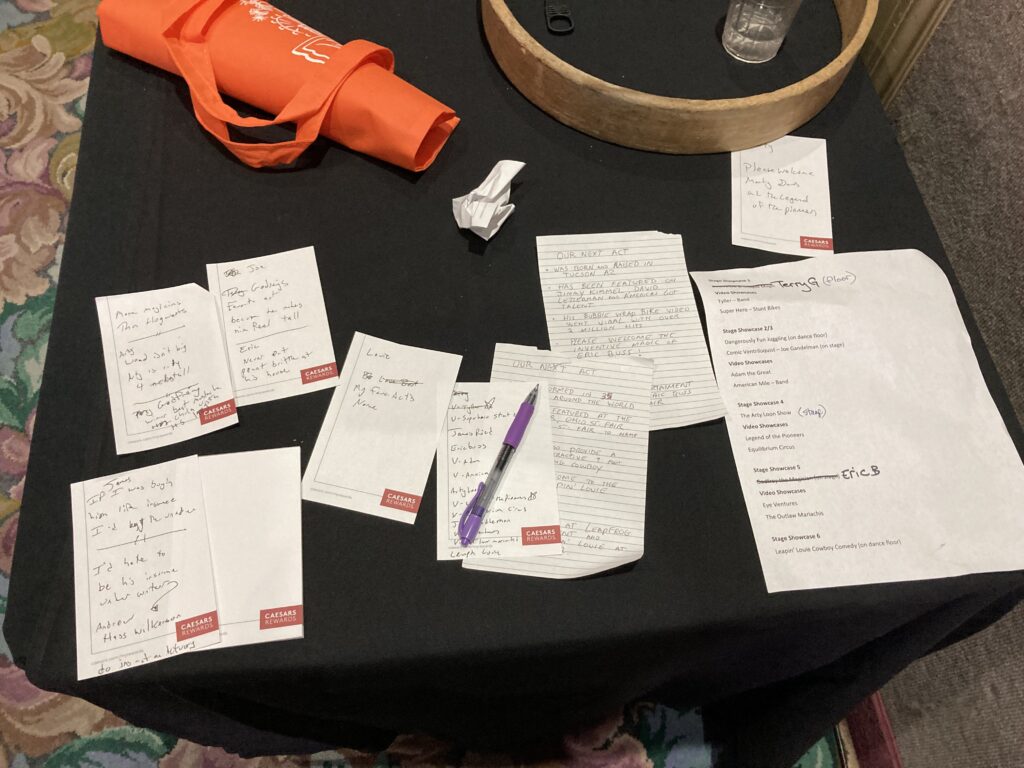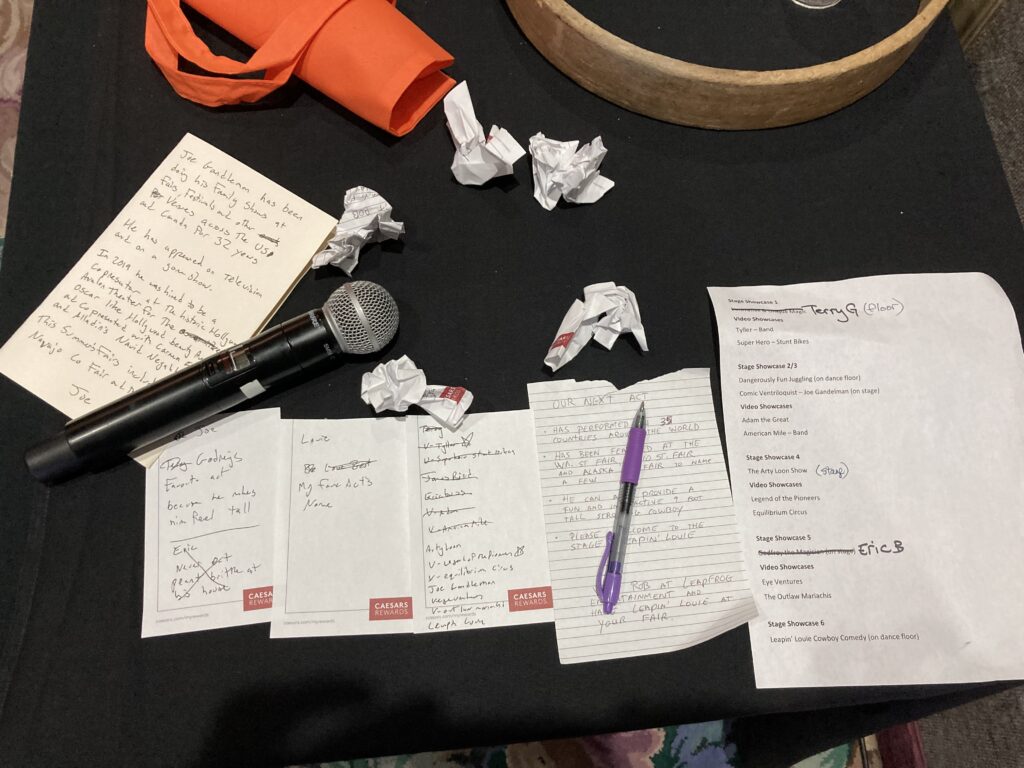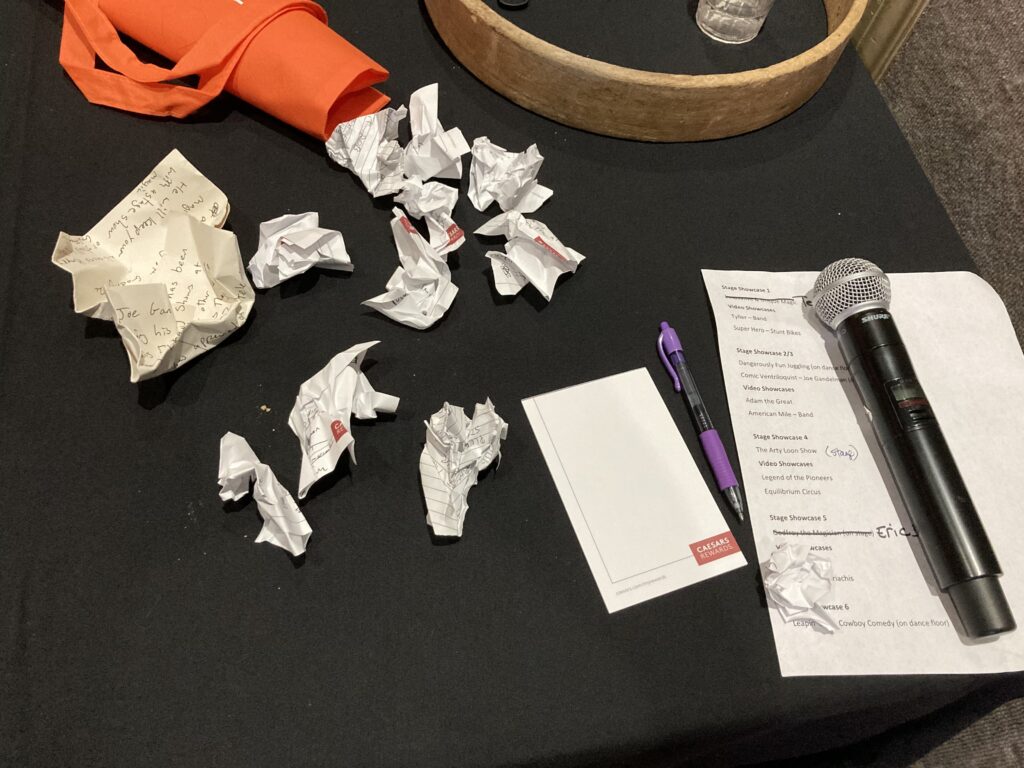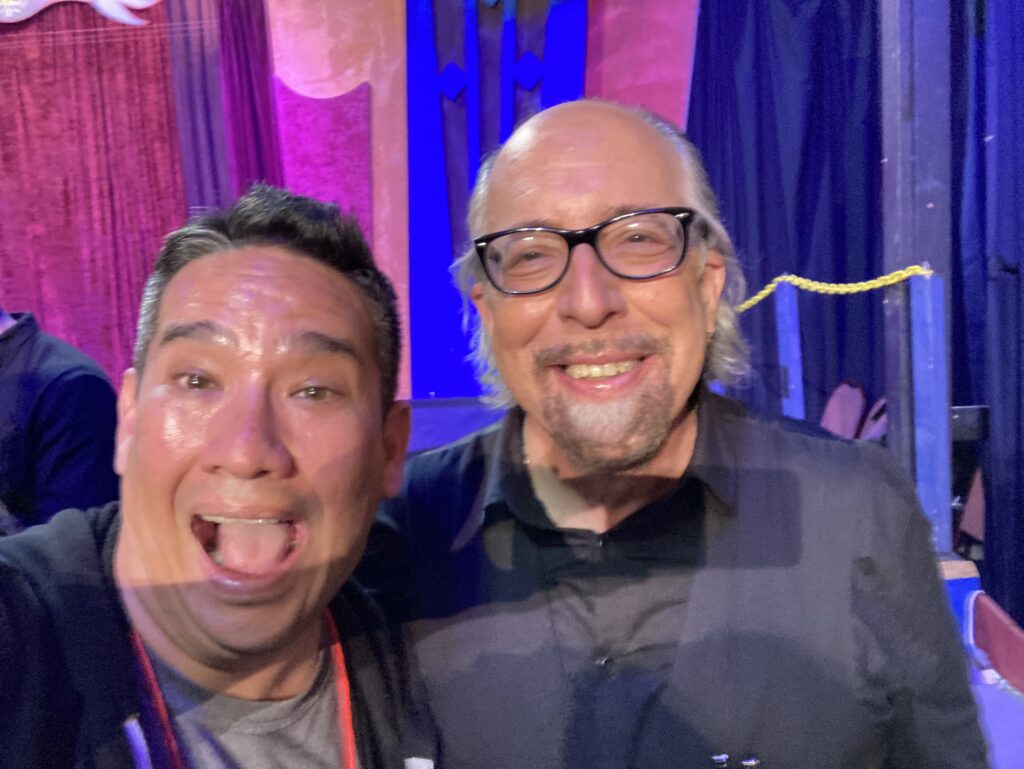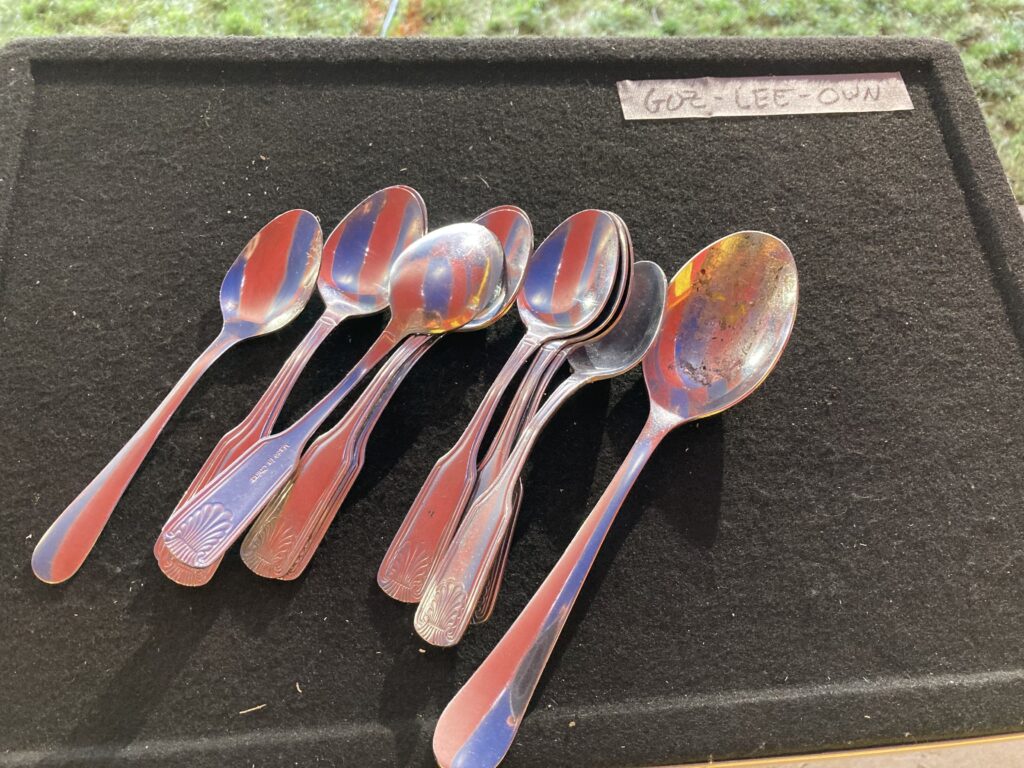When I MC a show, I write out each act’s info on it’s own sheet of paper. That act’s paper and only that act’s is in my pocket when go out to introduce them. I do my best to memorize the introduction, however if I need the paper, it’s the only one in my pocket, so it’s easy to find.
Also on each act’s paper I write any notes, usually I’ll write their ending bit if I know it. That helps me prepare for when to walk out. The other thing I do is write joke ideas to say after their act. For example one of the acts I recently worked with ended his act by producing flags. The joke I wrote was, “That act has more flags than my neighbor’s pickup truck!” and that got a big laugh.
After each act, I crumple up their paper, but don’t throw it away. I leave it around in case I need to remember anything, like a joke was good and I can use it elsewhere.
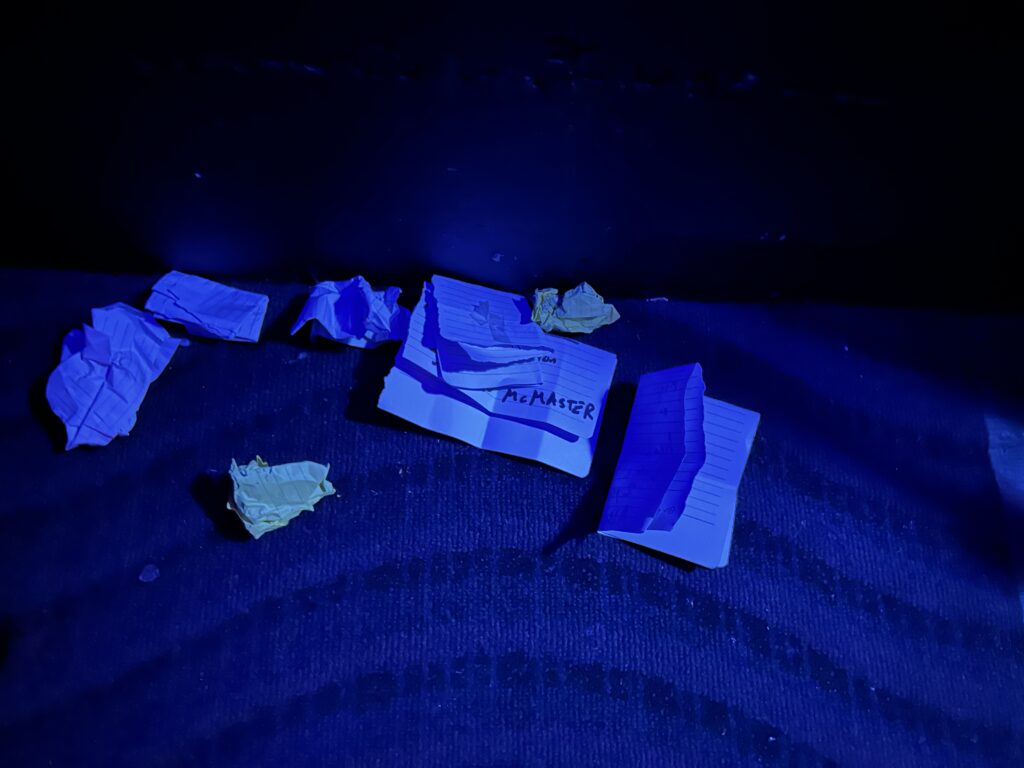
This system may look messy, however I know a lot of other people that do MC work that use a similar system of crumbling up notes, but not throwing them away until after the show. If you’re not doing it this way, give it a try!
-Louie

